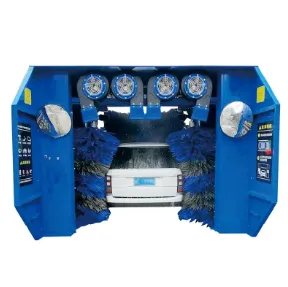
- Afrikaans
- Albanian
- Amharic
- Arabic
- Armenian
- Azerbaijani
- Basque
- Belarusian
- Bengali
- Bosnian
- Bulgarian
- Catalan
- Cebuano
- Corsican
- Croatian
- Czech
- Danish
- Dutch
- English
- Esperanto
- Estonian
- Finnish
- French
- Frisian
- Galician
- Georgian
- German
- Greek
- Gujarati
- Haitian Creole
- hausa
- hawaiian
- Hebrew
- Hindi
- Miao
- Hungarian
- Icelandic
- igbo
- Indonesian
- irish
- Italian
- Japanese
- Javanese
- Kannada
- kazakh
- Khmer
- Rwandese
- Korean
- Kurdish
- Kyrgyz
- Lao
- Latin
- Latvian
- Lithuanian
- Luxembourgish
- Macedonian
- Malgashi
- Malay
- Malayalam
- Maltese
- Maori
- Marathi
- Mongolian
- Myanmar
- Nepali
- Norwegian
- Norwegian
- Occitan
- Pashto
- Persian
- Polish
- Portuguese
- Punjabi
- Romanian
- Russian
- Samoan
- Scottish Gaelic
- Serbian
- Sesotho
- Shona
- Sindhi
- Sinhala
- Slovak
- Slovenian
- Somali
- Spanish
- Sundanese
- Swahili
- Swedish
- Tagalog
- Tajik
- Tamil
- Tatar
- Telugu
- Thai
- Turkish
- Turkmen
- Ukrainian
- Urdu
- Uighur
- Uzbek
- Vietnamese
- Welsh
- Bantu
- Yiddish
- Yoruba
Leading Manufacturers of Tunnel Car Wash Systems and Equipment
The Rise of Tunnel Car Wash Manufacturers A Clean Solution for Modern Society
In today's fast-paced world, where time is a luxury and convenience reigns supreme, the car wash industry has undergone significant transformations to meet consumer demands. Among the various types of car wash systems, tunnel car washes have gained immense popularity due to their efficiency and effectiveness. This article explores the rise of tunnel car wash manufacturers and their impact on the automotive maintenance sector.
Understanding Tunnel Car Wash Systems
Tunnel car washes are designed to provide a thorough cleaning of vehicles using a conveyor system that moves cars through a series of washing stages. Typically, these systems include high-pressure water sprays, foam applicators, brushes, and drying mechanisms, all integrated into a streamlined process that can service multiple cars simultaneously. The combination of automation and water efficiency in tunnel car washes makes them not only popular but also environmentally friendly. As water scarcity becomes a pressing issue globally, these systems are engineered to recycle and conserve water, making them a sustainable choice.
The Market Growth of Tunnel Car Wash Manufacturers
As urbanization continues to rise, and the number of vehicles on the road increases, the demand for efficient car wash solutions keeps growing. Tunnel car wash manufacturers have recognized this trend and are stepping up their efforts to innovate and expand. The global car wash industry has seen a surge in market growth, projected to reach over $40 billion by 2025. A significant share of this market is represented by tunnel car wash systems, driven by their ability to deliver high-quality car washing services in a fraction of the time that traditional methods would require.
Key Players in the Industry
tunnel car wash manufacturers

Numerous manufacturers dominate the tunnel car wash market, each contributing unique technologies and services. Prominent names in the industry include Washworld, PDQ Manufacturing, and Belanger. These manufacturers are investing heavily in research and development to enhance their offerings, focusing on features like touchless washing technology, eco-friendly cleaning solutions, and user-friendly interfaces. The competitive landscape incentivizes innovation, prompting manufacturers to continuously improve the washing experience for customers while reducing operational costs.
Technological Advancements
The evolution of tunnel car wash systems is closely linked with technological advancements. Features such as sensors, automated payment systems, and mobile applications enhance customer experience, making it more seamless. Moreover, manufacturers are increasingly incorporating smart technologies, like machine learning and artificial intelligence, to analyze user data and optimize cleaning processes. These technologies not only improve efficiency but also allow operators to provide personalized services based on customer preferences.
Environmental Considerations
As environmental concerns grow, tunnel car wash manufacturers are responding with more sustainable practices. Many modern systems use biodegradable soaps and chemicals, ensuring that the runoff is less harmful to the environment. Additionally, advancements in water recycling technology allow for the reuse of water, significantly reducing wastage. Tunnel car washes can use as little as 15 gallons of water per vehicle, compared to the 100 gallons that might be consumed in a typical home washing scenario.
Conclusion
The rise of tunnel car wash manufacturers symbolizes a larger shift toward efficient, sustainable solutions in the automotive-care industry. With technological advancements enabling greater efficiency and environmental responsibility, these manufacturers are well-positioned to meet the evolving needs of consumers. As we move toward an increasingly automated and eco-conscious future, tunnel car wash systems will likely continue to play a pivotal role in keeping our vehicles clean and our environment safe. Ultimately, the blend of innovation and responsibility in this sector highlights the importance of adapting to modern consumer demands while ensuring sustainability for generations to come.
-
Integrating Aqua Tunnel Car Wash in Shopping CentersNewsJun.24,2025
-
Gas Station with an Auto Car Wash MachineNewsJun.24,2025
-
Efficiency in Your Aqua Tunnel Car Wash: Power & Water-SavingNewsJun.24,2025
-
Car Wash Business with Advanced Auto Car Cleaning MachinesNewsJun.24,2025
-
Balancing Setup Costs with Aqua Tunnel Car WashNewsJun.24,2025
-
Aqua Tunnel Car Wash: Eco-Design for the Energy-Savvy EntrepreneurNewsJun.24,2025



